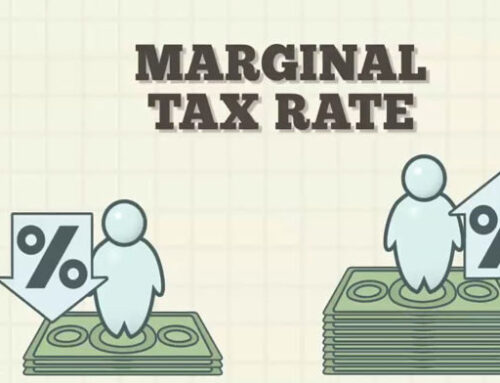A recent survey conducted by our organization revealed an interesting trend: every Canadian believes that their province pays the highest taxes. But is this perception aligned with reality for residence affect tax payments?
Unveiling the Truth: Are Tax Payments Affected by Your Place of Residence?
In Canada, our income tax rates are subject to two factors: the level of income we earn and our place of residence. It is generally observed that Quebecers bear the highest tax burden nationwide.
The Impact of Income and Location on Residence Affect Tax Payments in Canada
The taxation system in Canada operates on the principle that higher-income earners should contribute a larger proportion of their earnings in taxes compared to those with lower incomes. This is accomplished through the implementation of tax brackets. Under this system, the initial portion of income earned by all taxpayers is subject to lower tax rates, with subsequent income being taxed progressively at higher rates.

Federal income tax brackets for the year 2019 in Canada are as follows:
- 15% on the first $47,630 of taxable income
- 20.5% on the next $47,629 of taxable income (on the portion of income over $47,630 up to $95,259)
- 26% on the next $52,408 of taxable income (on the portion of income over $95,259 up to $147,667)
- 29% on the next $62,704 of taxable income (on the portion of income over $147,667 up to $210,371)
- 33% on taxable income exceeding $210,371
However, it’s important to note that tax payments are not solely determined by federal tax rates. In addition to federal taxes, individuals are also subject to provincial and territorial taxes, which vary based on the location of their residence. Each province and territory in Canada has its own set of residence affect tax payments brackets, further impacting the overall tax burden.
To determine which province pays the highest taxes, let’s consider the provincial tax payments based on a taxable income of $65,000 in 2019*:
- Newfoundland and Labrador: Total taxes paid – $7,244.72
- Prince Edward Island: Total taxes paid – $7,690.64
- Nova Scotia: Total taxes paid – $7,993.90
- New Brunswick: Total taxes paid – $7,443.76
- Quebec: Total taxes paid – $10,801.50
- Ontario: Total taxes paid – $4,147.35
- Manitoba: Total taxes paid – $7,650.43
- Saskatchewan: Total taxes paid – $7,220.49
- Alberta: Total taxes paid – $6,500.00
- British Columbia: Total taxes paid – $3,930.33
- Yukon: Total taxes paid – $4,611.62
- Northwest Territories: Total taxes paid – $4,425.29
- Nunavut: Total taxes paid – $3,187.58

Based on the above calculations, Quebec residents pay the highest taxes in Canada, while Nunavut residence affect tax payments the lowest. However, it is worth noting that Quebec residents pay lower federal taxes compared to residents of other provinces, thanks to an abatement of 16.5%.
Therefore, while income level does influence residence affect tax payments, the location of residence also plays a significant role in determining the overall residence affect tax payments burden for individuals in Canada.
*Note: Taxable income is reduced by non-refundable tax credits, such as the federal basic amount, which varies based on the taxpayer’s circumstances.
Also Read: Are tipping subject to taxation in Canada?
Taxes are a fundamental part of our financial lives, and where you choose to call home can significantly impact your tax payments. Your place of residence influences the types of taxes you owe, the tax rates you’re subject to, and the available deductions and credits. In this blog post, we’ll explore how your place of residence can affect your residence affect tax payments and provide insights into how you can make informed decisions to manage your residence affect tax payments burden effectively.
-
State Taxes
The state you live in plays a significant role in determining your tax payments. States have their own income tax rates, which can vary widely. Some states have no income tax at all, while others have progressive tax systems with higher rates for higher income levels. It’s essential to understand your state’s tax structure and how it affects your overall tax liability.
- Income Tax: High-income earners may find it advantageous to live in states with no income tax, such as Florida or Texas. Conversely, individuals in states with high income tax rates, like California or New York, may need to plan their finances accordingly to account for larger tax payments.
- Sales Tax: State sales tax rates also vary, impacting the cost of goods and services in your area. Some states have no sales tax, while others have rates exceeding 10%. This can significantly affect your cost of living and overall tax payments.

-
Property Taxes
Your place of residence can have a substantial impact on your property tax payments. Property tax rates differ not only from state to state but also from city to city and even neighborhood to neighborhood residence affect tax payments within the same state.
- Home Value: Property taxes are typically assessed based on the value of your home. Areas with higher property values may have higher property tax rates, leading to more substantial tax payments.
- Tax Exemptions: Some states offer property tax exemptions or deductions for certain individuals, such as seniors or veterans. Research your state’s property tax laws to see if you qualify for any exemptions or reductions.
-
Local Taxes
In addition to state taxes, local taxes can also affect your overall tax payments. Localities often impose taxes on income, property, and sales in addition to state-level taxes that residence affect tax payments. Be sure to consider these local taxes when evaluating the cost of living in a particular area.
-
Federal Tax Implications
While your place of residence primarily affects state and local taxes, it can indirectly impact your federal tax payments. State income tax payments, for example, can be deducted from your federal taxable income, reducing your federal tax liability.
Also Read: Are Gifts To Customers And Business Associates Deductible Expenses?
Conclusion
Your place of residence plays a pivotal role in determining your tax payments. State income taxes, property taxes, and local taxes all contribute to your overall tax burden. When choosing where to live or considering a move, it’s essential to factor in the tax implications, as they can significantly impact your financial well-being. Consulting with a tax professional or financial advisor who understands the tax laws and regulations in your area can help you make informed decisions to minimize your residence affect tax payments while ensuring compliance with tax laws. Remember that tax laws can change, so staying informed about the latest updates is crucial for effective tax planning.
Recent Posts
FAQ
Does the location of residence play a significant role in determining the overall tax burden for individuals in Canada?
Yes, while income level does influence tax payments, the location of residence also plays a significant role in determining the overall tax burden for individuals in Canada.



